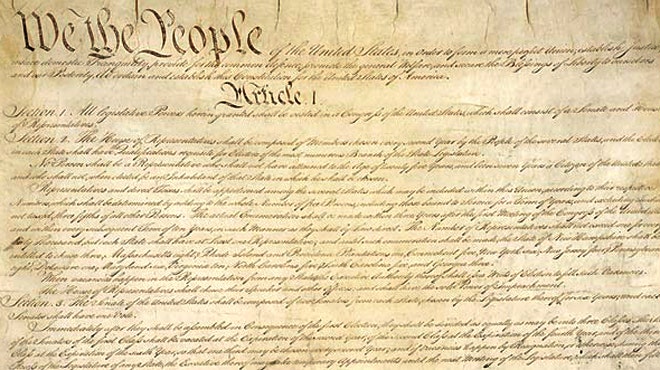Thu, 15 Jan 2009 16:31:35 +0000 – By Lanny DavisAttorney/Former White House Special Counsel
I have strong disagreements with Mr. Bush on policies and politics; but I have respect and affection for him as a person, going back to our years as friends at Yale College in the 1960s.
(AP)
My policy differences with Mr. Bush as president are major.
I thought his tax cuts favored the wealthy and were ill-advised. They helped convert a trillion-dollar surplus left behind by Bill Clinton, with some help from a Republican Congress, and converted it into hundreds of billions of dollars of red ink, even without accounting for the Iraq war and this past fall’s economic meltdown.
I strongly disagreed with his decision to go into Iraq pre-emptively. And I still think, despite progress and some signs of stability and democracy in Iraq for which he deserves credit, that the war was not worth the lives lost or the hundreds of billions spent, with little sign that it had any effect on the war against terror and seems to have had a greater effect of empowering Iran in the region.
I was disappointed by Mr. Bush’s apparent indifference to the dangers of global warming and to those in his administration who seemed to care more about ideology and the economic interests of the Republican Party than science and facts.
I worried that, in the name of waging war on terror, Mr. Bush had allowed his Justice Department to approve actions without a sound legal basis, such as torture, renditions, indefinite imprisonment at Guantanamo, warrantless surveillance, and other actions in the name of the war on terrorism that I think have blemished America’s reputation around the world as a nation of laws and constitutional principles.
But I also think it is unfair not to give Mr. Bush the benefit of the doubt that he did these things sincerely, believing they were legal under the circumstances and helped protect America from another terrorist attack. And I believe, to be fair, he deserves some credit that no such attack has occurred since Sept. 11, 2001.
And to give credit where credit is due, Mr. Bush also at times exhibited what President John F. Kennedy defined as political courage – the willingness to stand on principle against the base of your own party. He did so on such issues as comprehensive immigration reform, providing more than 40 million seniors with Medicare-covered prescription-drug benefits, and “No Child Left Behind.”
Regarding the latter, despite all the valid criticism that it was too driven by teaching-for-testing and a lack of adequate funding, it should be remembered that the liberal icon and hero Sen. Edward M. Kennedy stood with Mr. Bush at the White House in the early days of his administration to co-sponsor this legislation and still supports this program, because it did produce dramatic improvements in public school performance and accountability in certain respects, particularly among inner-city minorities and poor children.
Finally, lest we forget, Mr. Bush was also willing to touch the third rail of American politics still avoided by most Democrats – Social Security reform. His proposal that would have allowed individuals to divert a percentage of their contributions to Social Security to investments in the stock market would have added more than $1 trillion to the system’s deficit. Obviously, given the market’s recent historic plunge, it is just as well the proposal was DOA.
But Mr. Bush is the first president to suggest the rather liberal concept of some form of needs-based consideration in Social Security entitlements. He raised the question of why it made sense for a billionaire to receive a check he does not need whereas the working poor receive a check much less than they need. This was Mr. Bush’s “Nixon to China” moment: No Democrat would have dared make such a progressive proposal, even though we secretly were cheering him on.
And now to address Mr. Bush the man.
I have written before about his basic decency and empathy as a person, hearkening back to an incident I recall vividly during Yale days when we were both residents within the small community of Davenport College. We were hanging out one night when a classmate of mine, who was obviously gay, walked by. Someone made a nasty crack. Mr. Bush snapped, “knock it off” or something to that effect – “why don’t you try walking in his shoes and seeing how it feels.”
I remembered this incident more than once as I watched with dismay Mr. Bush allowing his political advisers to use gay marriage as a polarizing political tool to help him win re-election in 2004. But I also knew that Mr. Bush had provided tens of millions of dollars to Africans suffering from AIDS or other diseases.
I know him as a kind man who reaches out to friends in good times and bad, a husband and father who loves his family, and a son whose love and devotion to his mom and dad are profound.
President Bush’s character makes it such that one can disagree with and vote against him, but still respect the man, says columnist Lanny Davis. The two started a friendship at Yale College in the 1960s. (United Press International)
And, finally, I know him as a president who can talk to a particular 10-year-old I know and make him feel important and not patronized. That 10-year-old is my son, Josh.
Josh came home one night from school and asked me whether it was really true that I knew and liked both Mr. Clinton and Mr. Bush, because his friends thought that was impossible. Weren’t Mr. Clinton and Mr. Bush presidents from different political parties, he asked? Aren’t you a Democrat like Mr. Clinton? How can you be friends with Mr. Bush, too?
He seemed skeptical that that was possible. I saw it as a challenge from my 10-year-old. So the next day, I sent a note to Mr. Bush, told him about Josh’s skepticism, and asked whether I could bring Josh over to meet him.
A few weeks later, Josh was sitting in the Oval office with Mr. Bush. My wife and I were standing away, against the wall, not included in the conversation. We watched with amazement as the president and our 10-year-old engaged in what was apparently a serious conversation for 10 minutes or more.
Then the president reached into his desk drawer and took out a baseball (Josh is a pretty good baseball player, as was Mr. Bush when he was at Yale) and signed it. We overheard the president tell Josh how frightened he had been when he had to throw the first ball out in Yankee Stadium after 9/11, choosing to do so from the pitching mound. He told Josh that he feared – as Derek Jeter had warned him after a practice session in the player’s tunnel leading to the field – that he might throw the ball into the dirt and embarrass himself.
Josh laughed, appreciating why that would be embarrassing to a baseball player.
When we were done, young Josh said goodbye with a firm handshake, a smile, and a clear, “Thank you, Mr. President.” As we walked out of the West Wing, I asked Josh what he thought about Mr. Bush. “He’s cool,” was the reply, Josh’s ultimate compliment.
Now do you understand, I asked him, why I can disagree with him, vote against him, but still like him? Josh nodded, yes.
Mission accomplished.
Editor’s Note: This column also appeared in The Washington Times on January 12.
Lanny Davis, a Washington lawyer and former special counsel to President Clinton, served as a member of the Privacy and Civil Liberties Oversight Board from 2006 to 2007. He is the author of “Scandal: How ‘Gotcha’ Politics Is Destroying America.”



Leave a Reply